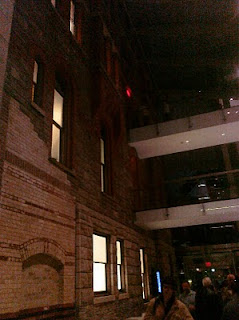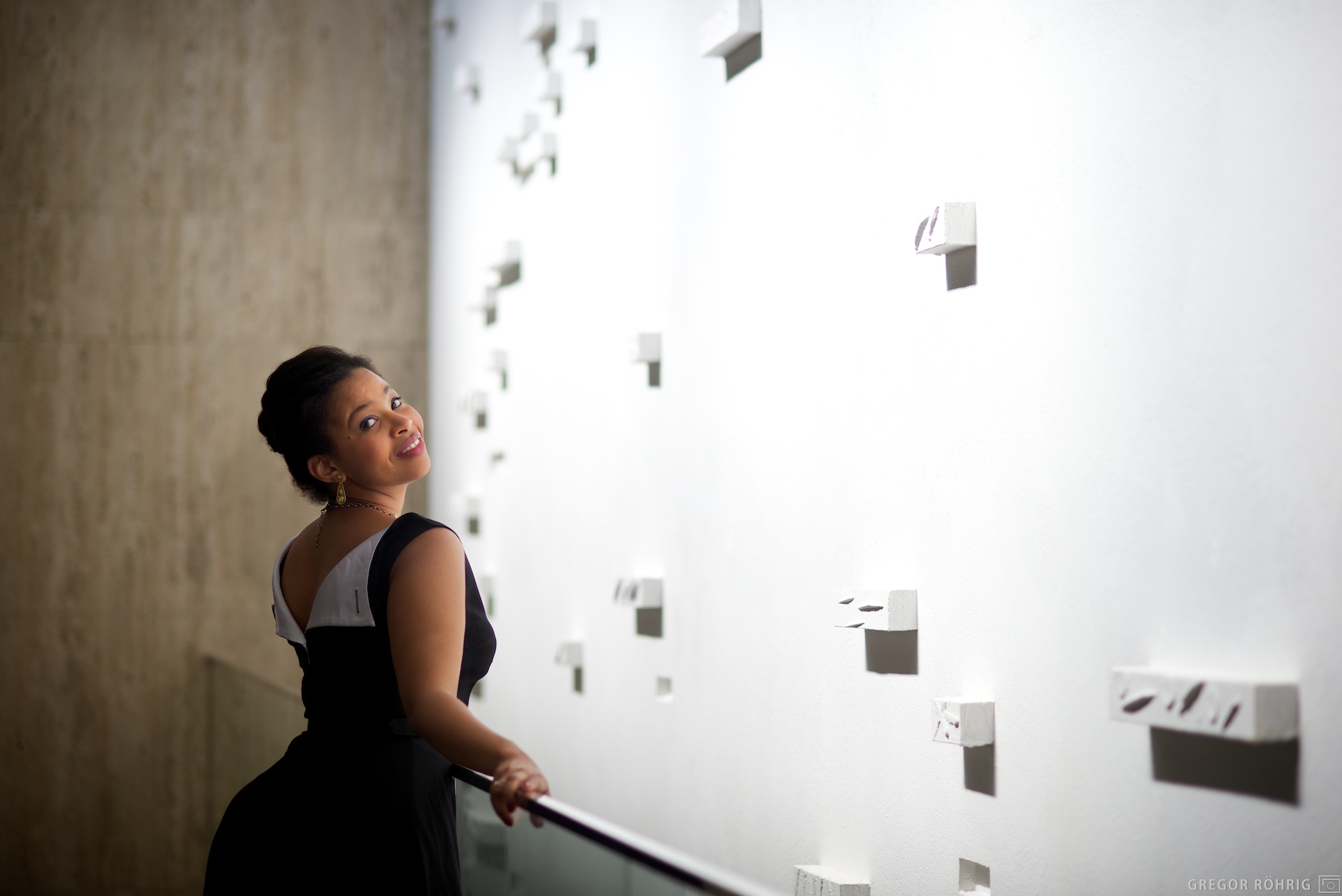
Photo: Gregor Rohrig
The music of Mozart was part of my regular musical diet as a child His work, when I first heard it, had all things my young mind could grab hold of: melody, momentum, drama. One of the first operas I thoroughly enjoyed was Die Zauberflöte (The Magic Flute), a deceptively simple opera often programmed by companies program as an audience-pleaser. Many productions emphasize its seemingly whimsical nature, with fantastical representations of various realms of reality, and of course, rich comic aspects (the latter being an aspect I genuinely enjoyed about the acclaimed silent-movie style Kosky/Komische Oper Berlin production). Die Zauberflöte is a profound examination of what is l0st and gained on the path to adulthood and features a myriad of interesting characters who are almost, without fail, portrayed as cliches; the heroic prince, the funny birdman, the wicked Queen. The character of Pamina, in particular, is rarely given any color or vibrancy. That changed when I heard Golda Schultz in the role last year. It’s one she sees as far from thankless.
The soprano, born in South Africa but based in Germany since 2011, made her Metropolitan Opera debut singing Pamina last season. In a 2017 interview with the Times of Israel, she said she found the character “surprisingly strong. She is the one who saves herself.” Vocally beguiling, Schultz demonstrated a wonderfully flexible tone with a hearty and at times rich sound; note for note she matched the immense Met Orchestra in tone, confidence, sheer presence. A graduate of New York’s prestigious Juilliard School, Schultz became a member of the Bayerische Staatsoper Opernstudio in 2011 in Munich, which exposed the young artist to a range of roles and performances; in 2012 she made her formal Bayerische Staatsoper debut in a principal role she’s since performed many times, that of the hapless Contessa Almaviva in Le nozze di Figaro (The Marriage of Figaro). Schultz also spent a season with Stadttheater Klagenfurt in Austria, where she was acclaimed in new productions of both Der Rosenkavalier and Giulio Cesare. In 2015, she made a splash in her debut with Staatsoper Hamburg in the world premiere of Beat Furrer’s La bianca notte. She’s also performed at Glyndebourne, the Salzburger Festspiele, Teatro Alla Scala, and, most recently, at the 2018 BBC Proms. Opera writer Fred Plotkin recently named her one of the “40 Under 40” singers to watch. More Mozart awaits this autumn, with performances of Nozze at both the Vienna State Opera and Opera Zurich.
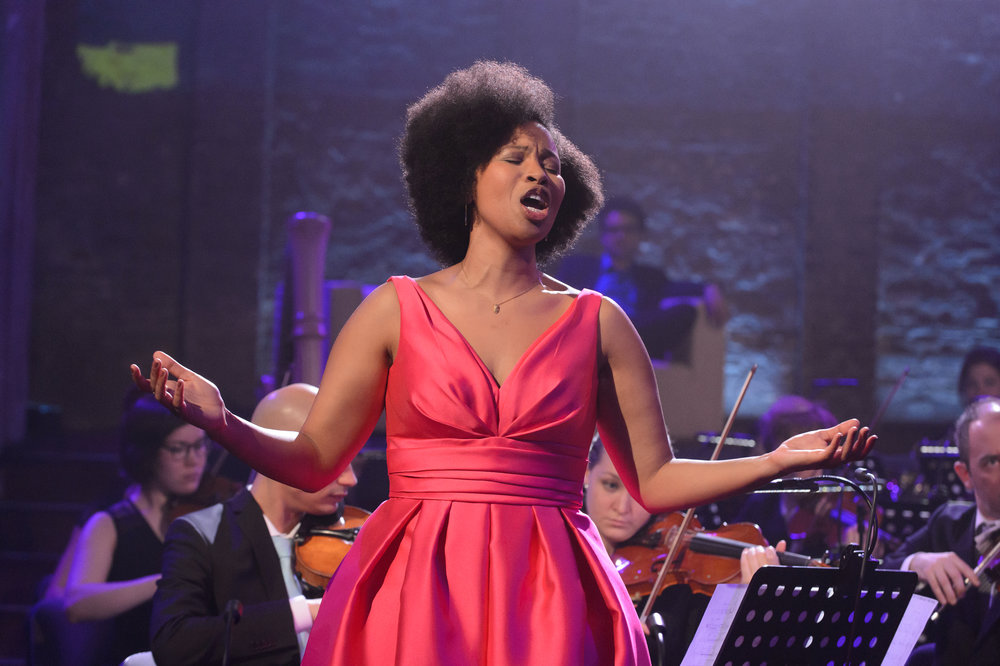
At the Stars of Tomorrow Concert, March 2017. Photo: Claudius Pflug.
Performing in Berlin at the Konzerthaus this weekend, Schultz’s program includes works by Mozart and Beethoven under the baton of conductor Riccardo Minasi, who leads the Konzerthaus Orchestra Berlin in these, as well as symphonies by Haydn and Mozart. Beethoven’s dramatic concert aria “Ah! Perfido” as well as a pair of short Mozart arias, “Vado, ma dove?” and “Misera, dove son!” / “Ah! non son io che parlo” were delivered with a genuinely magnetic mix of sensitivity and steel on Saturday evening, with Schultz showing off an exceptionally liquid-golden tone, smart modulation, and exceptional dramatic instinct. Her latter Mozart performance in particular inspired many hearty bravos and cheers. Berliners will have to wait until June to see her live again; she’ll be appearing at the Boulez Hall for an all-Schubert recital with pianist Jonathan Ware.
Just before weekend performances, Schultz and I met to talk singing, learning languages, and the special appeal of Mozart to singers, not to mention the challenges of Beethoven. We also talked about her current work with acclaimed Venezuelan conductor Gustavo Dudamel, whom she’s working with as part of a tour with the Mahler Chamber Orchestra. (She’s back with them next week for performances in Spain.) In-person, Schultz is every bit as passionate as she is when performing — you can feel her energy, a sparky, fierce glow that encompasses and encapsulates an artistry that is at once awesome and approachable. That makes for an exciting performer, and, perhaps, provides the right inspiration for many young artists and new audiences as well.
How long did it take you to learn German?
I’m still learning! I say one wrong word and they switch to English immediately. They go, “ We can speak English, it’s fine!” I’ve been here since 2011, but it took me two-and-a-half years to get up the guts to start speaking German and the only reason is that I lived in the south for a while, in Klagenfurt, where no one speaks English — it’s German or Italian only.
But I’d imagine having the language facility is hugely helpful as a singer.
It’s a tough thing, There’s the old school that says you have to learn the languages to sing in the languages, but then the IPA discovered ways for everyone to sing, which has been really helpful and opened up the industry to people who wouldn’t have access really unless you were part of the culture. So in those terms, phonetics has kind of democratized the culture of classical music — if you’re from Korea or South Africa you can sing in Italian even if you weren’t raised speaking it. But the more you stick with a piece the more the rhythm of the language filters into what you’re doing. In the beginning it’s difficult and it’s tedious, but there’s something quite profound and tactile about having to learn a language.
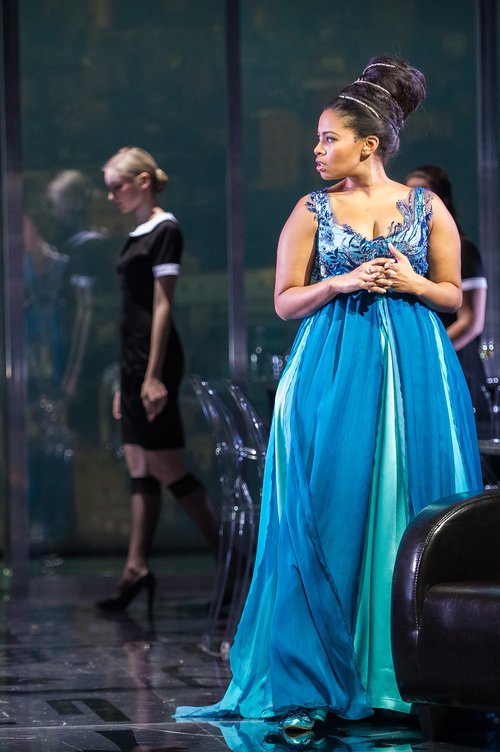
As Cleopatra in “Guilio Cesare” at Stadttheater Klagenfurt, February 2014. (Photo: Karlheinz Fessl)
What was your first experience singing in a language you didn’t know?
That was in The Marriage Of Figaro in Klagenfurt. I don’t speak Italian — I mean, I can throw some phrases around but that’s it — so I had to do the phonetics. The diction teacher said to do the basic translation first, then the poetic translation, but you still need to know what every single words means and then deconstruct how you speak it; you need to know where the verb is, where the adjective is, and learn about stresses. I’ve discovered that sometimes even people who speak the language don’t necessarily know what they do, things like phrasal doubling; if you ask the average Italian, they don’t know what that is for the most part, they just know when they hear it and someone doesn’t do it, they’ll correct it. Only now, slowly, Italian coaches are learning to talk to you about something like phrasal doubling but if you don’t know to do it, the language doesn’t sound right.
Is this something that was emphasized when you were in the Bayerische Staatsoper ensemble?
Yes, in that ensemble you have to be a jack of all trades. I’ve done Wagner, Stravinsky, Dvorak, Puccini… sometimes you do it all in the same month! My first Wagner I sang a Valkyrie in 2012, when still in the Opera Studio. That was amazing. Initially I told the German coach who was helping me, “I can’t sing Wagner!” and he said, “Yes you can, you just have to know how to sing the consonants in German. If you can do that, Wagner will never go against your legato.” And if you really notice, Wagner writes quite cleverly! When there’s a lot of singing, he kind of silences the orchestra; if you look at the score, it’s very extreme but the minute people start singing, they’re holding atmosphere. That’s where so many twentieth century composers found the idea of atmosphere, in Wagner’s writing. The “Hojotoho!” happens three or four times, but the score also has things like piano and pianissimo — he wants a scene to play. The music is so exciting and the drama is so intense.
But your voice has changed too; you’re touring Mahler 4 right now with Gustavo Dudamel and the Mahler Chamber Orchestra.
It’s not easy to do; you have to know what you are capable of and what you are not capable of. I like to study full scores — conducting scores — and, no joke, Mahler writes “Do not overpower the singer” in the fourth movement, so if you want to sing softly, the orchestra has to help you. It’s quite interesting he wrote that; Gustavo said during rehearsals, “I want her to sing as quietly as she wants to.”
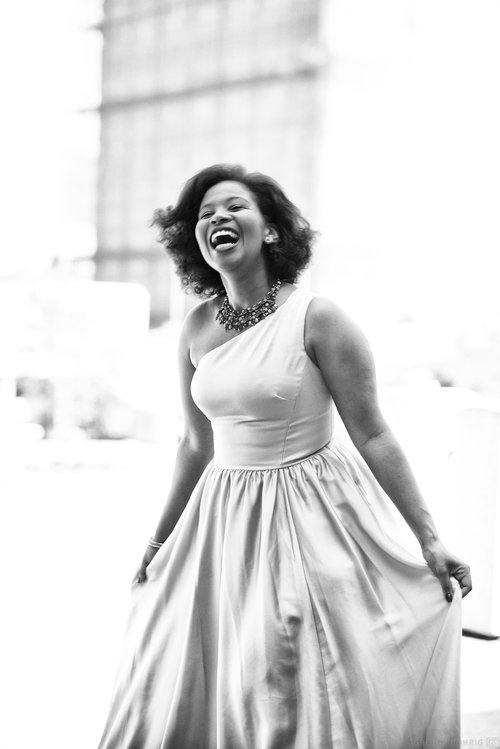
Photo: Gregor Rohrig
Is this your first time working with Maestro Dudamel?
Yes. It’s indescribable. When you see pictures or you see videos of him talking about things, you get the sense he’s a larger-than-life character and full of personality; when you meet and work with him, that largeness of character comes from a very quiet place of passion and joy, and it’s just because it’s so concentrated and so intensely about the work and about bringing everything together. There’s something quite lovely and almost shy about it, really fine and small and delicate — he is genuinely one of the kindest people I’ve worked with. It’s really rare for anybody to be that grounded and lovely, especially someone who’s had so much success at such a young age. At the end of every concert, he refuses to bow himself, he likes to bow with everybody. He recognizes we all did it together and his job wouldn’t exist without everybody else doing their job — he has so much respect for each person. The bowing takes almost as long as the concert! He’s like Oprah: “You get a bow and you get a bow and you get a bow!” And people go nuts. The applause in Lisbon lasted ten minutes if not more.
What’s it like to experience that kind of energy from an audience?
I’m grateful, and I’m glad my job helped people have a good evening. It can be an emotional experience, the experience of live performance and the receiving of a live performance. It’s a real relationship that happens over a space of time, but to some extent, it’s one-sided: it’s me, the performer, giving you, the audience member, an emotional experience. What I really do appreciate is people who come after shows and go, “Thank you so much, it was so amazing” — it’s a genuine exchange. Someone came up to me after a show — I was dead tired, I wanted to go home and die somewhere in a corner; it also wasn’t my best performance, and someone came up and said, “I had a really rough day today, and this helped me make sense of my day, so thank you.” And I was like, “You and me both! You had a rough day, I had a rough day! This moment between us has helped me make sense of my day too, and we’re both leaving better than when we came!” That’s profound. I try to look for that kind of profound connection, even in the banal.
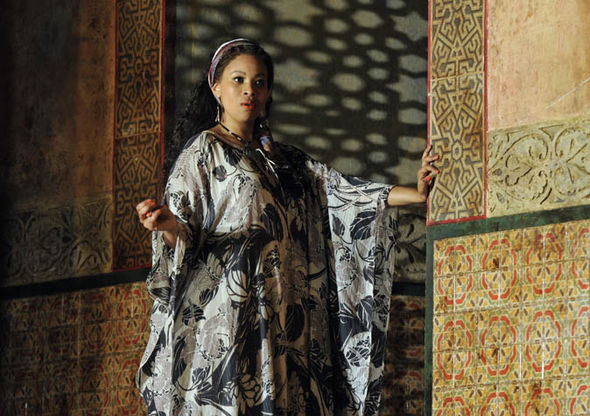
As Contessa Almaviva in “Le nozze di Figaro” at the Glyndebourne Festival, July 2016. Photo: Robbie Jack.
The concert at Konzerthaus this weekend seems anything but that — it feels like a nice display of your Mozart talents. You’ve performed The Marriage of Figaro a lot, you’ve done Clemenza, and you made your Met debut in The Magic Flute; Mozart seems to be your guy.
He’s my homey! I love singing Mozart, it sits nicely within my voice though I really don’t think there’s a voice he hasn’t written for. When people say they can’t sing him, I say it’s because you haven’t tried! What I find it he does one of two things: he either shows you everything you’re doing right with your singing, or everything you’re doing wrong with your singing. There are no places to hide with Mozart. It’s also the same with Beethoven, like “Ah, perfido!” It’s difficult to hide. He didn’t have the facility of hearing, so sometimes things are very tricky, but because he had the experience of writing for virtuosic violinists and clarinet players, he has that sense of virtuosity for other instruments. But fingers can move in a different way than a human voice! You sense that he knows, but he’s like, “Figure it out yourself!” It’s been quite an education to sing Beethoven, but I love it.
Beethoven’s vocal writing is notoriously difficult, but I whenever I hear it I always get the sense he knew and didn’t care.
No, he doesn’t care! The idea of words being connected and together and taking breaths… for him, the phrase matters more than the text sometimes, and that’s what makes it rewarding and ecstatic, especially when you do find a way. It’s not that he writes inhuman writing, it’s deeply human! But it’s on the border of almost too much in terms of what’s doable, and that’s the genius of Beethoven; through all of his music, he’s standing on the border, daring you to go to the edge of your abilities. You feel that pressure and … I like it, I really enjoy it.

